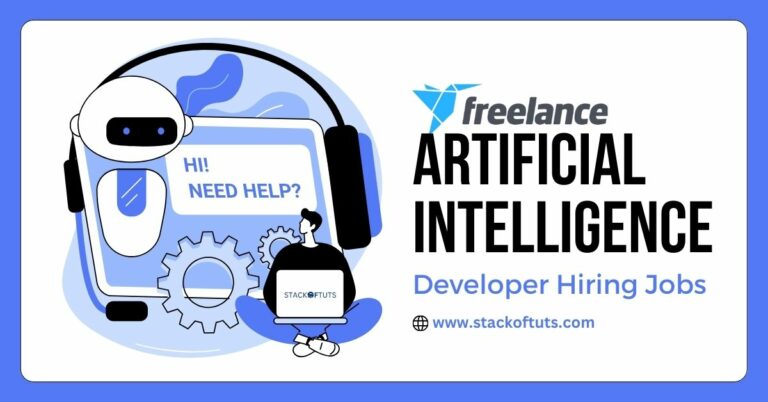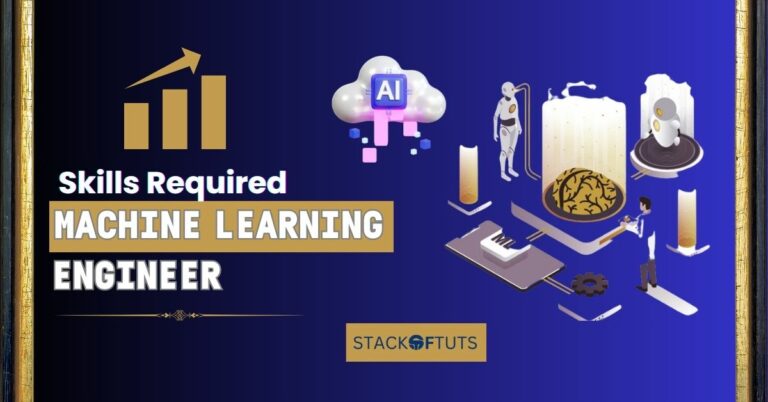
In the swiftly advancing tech landscape, there’s an escalating demand for capabilities linked to artificial intelligence (AI). AI embodies the mimicry of human intellect within machines, forging systems capable of actions typically necessitating human thought processes. This underscores the escalating demand for professionals experienced in AI. This article sheds light on the critical skills required for artificial intelligence jobs.
What does Artificial Intelligence (AI) signify?
AI represents the replication of human cognitive functions by machines, empowering them to execute functions like decision-making and identifying patterns, which are traditionally human-centric.
Why are AI jobs in demand?
AI jobs are in demand due to rapid technological advancements, the need to analyze vast amounts of data, AI’s capability to automate tasks and enhance efficiency, its transformative impact across industries, and a current shortage of skilled AI professionals.
Top Skills Required for Artificial Intelligence Jobs
- Programming Skills
- Statistics and Linear Algebra
- Neural Network Architectures
- Natural Language Processing (NLP)
- Cognitive Computing Skills
- Robotics
- Emotional Intelligence
- Industry Knowledge
1. Programming Skills

For anyone aspiring to step into the AI field, a strong background in programming is fundamental. Some of the popular languages include:
- Python: Renowned for its simplicity, Python is the most commonly used language in AI and machine learning projects.
- R: Useful for data analysis and visualization, R plays a significant role in statistics and data modeling.
- Java: Its speed and scalability make Java a preferred choice, especially for high-frequency trading applications.
2. Statistics and Linear Algebra

A deep understanding of statistics and linear algebra is crucial for anyone looking to pursue a career in AI.
- Statistics: Helps in data prediction and analysis. AI professionals use statistical methods to interpret data and generate useful business reports.
- Linear Algebra: Essential for understanding concepts like vectors, matrices, eigenvalues, and more, which are foundational in AI algorithms.
3. Neural Network Architectures

One of the primary Skills Required for Artificial Intelligence Jobs is mastering neural networks. These are algorithms designed to recognize patterns and consist of:
- Convolutional Neural Networks (CNNs): Primarily used in image recognition.
- Recurrent Neural Networks (RNNs): Beneficial for sequential data like time series or natural language.
4. Natural Language Processing (NLP)

NLP enables machines to understand and respond to human language. Key components include:
- Syntax and Semantics: Understanding the structure and meaning of sentences.
- Speech Recognition: Converting spoken language into data.
5. Cognitive Computing Skills

Cognitive computing is about simulating human thought processes in a computerized model. It involves:
- Problem Solving: The ability to break down complex tasks and solve them using AI.
- Human-Computer Interaction: Designing systems that can interact seamlessly with humans.
6. Robotics

AI and robotics often go hand-in-hand. Robotics skills include:
- Sensor Integration: Integrating sensors that can gather environmental data for robots.
- Motion Planning: Designing strategies for robots to move safely and efficiently.
7. Emotional Intelligence

While it may seem surprising, AI professionals need a degree of emotional intelligence. This skill helps in:
- Designing User-friendly AI: Creating AI systems that understand and cater to human emotions and needs.
- Ethical Considerations: Being aware of the societal and moral implications of AI applications.
8. Industry Knowledge

While not strictly a skill, knowing specific to the industry you’re working in can be invaluable. Whether it’s finance, healthcare, or retail, understanding the intricacies of the sector will guide better AI solutions.
Some additional skills for AI professionals
Here are some additional skills that may be beneficial for AI professionals:
- Cloud Expertise: Professionals in AI should possess the capability to launch and oversee AI systems within cloud environments.
- Data Mastery: Handling extensive data sets is a crucial skill for those in the AI field.
- Specialized Knowledge: AI experts with insights into specific sectors like healthcare, finance, or manufacturing stand out. Their unique understanding allows them to tailor AI solutions to address challenges within these industries.
- Leadership Abilities: Those AI experts with leadership qualities are poised to climb the career ladder and lead AI teams. Effective motivation, clear goal-setting, and consistent feedback are attributes they must exhibit.
- Business Insight: AI specialists with a keen sense of business can better grasp corporate needs, designing AI tools that align with these requirements. Recognizing AI’s potential to enhance efficiency and drive profit is vital.
- Innovative Thinking: Creativity is paramount for AI professionals. Crafting unique solutions and challenging conventional methods is essential for breakthroughs in the field.
- Computer vision: Computer vision is a field of AI that deals with the ability of computers to understand and interpret visual information. AI professionals who work in computer vision need to have a strong understanding of computer vision concepts and algorithms.
FAQs
Python is the most popular for AI due to its relevant libraries. R and Java are also valuable.
Yes, especially in statistics and linear algebra, as they form the foundation of AI algorithms.
Emotional intelligence aids in designing human-centric AI systems and understanding ethical implications.
A broad understanding is a good start, but specialization offers deeper expertise in specific AI sectors.
Conclusion
The AI industry is broad and ever-changing. Whether you’re an emerging AI aficionado or aiming to transition into this promising domain, gaining proficiency in the Skills Required for Artificial Intelligence Jobs is pivotal for your journey to excellence. As AI’s prominence grows across sectors, it’s the ideal moment to hone these abilities and elevate your professional trajectory.





